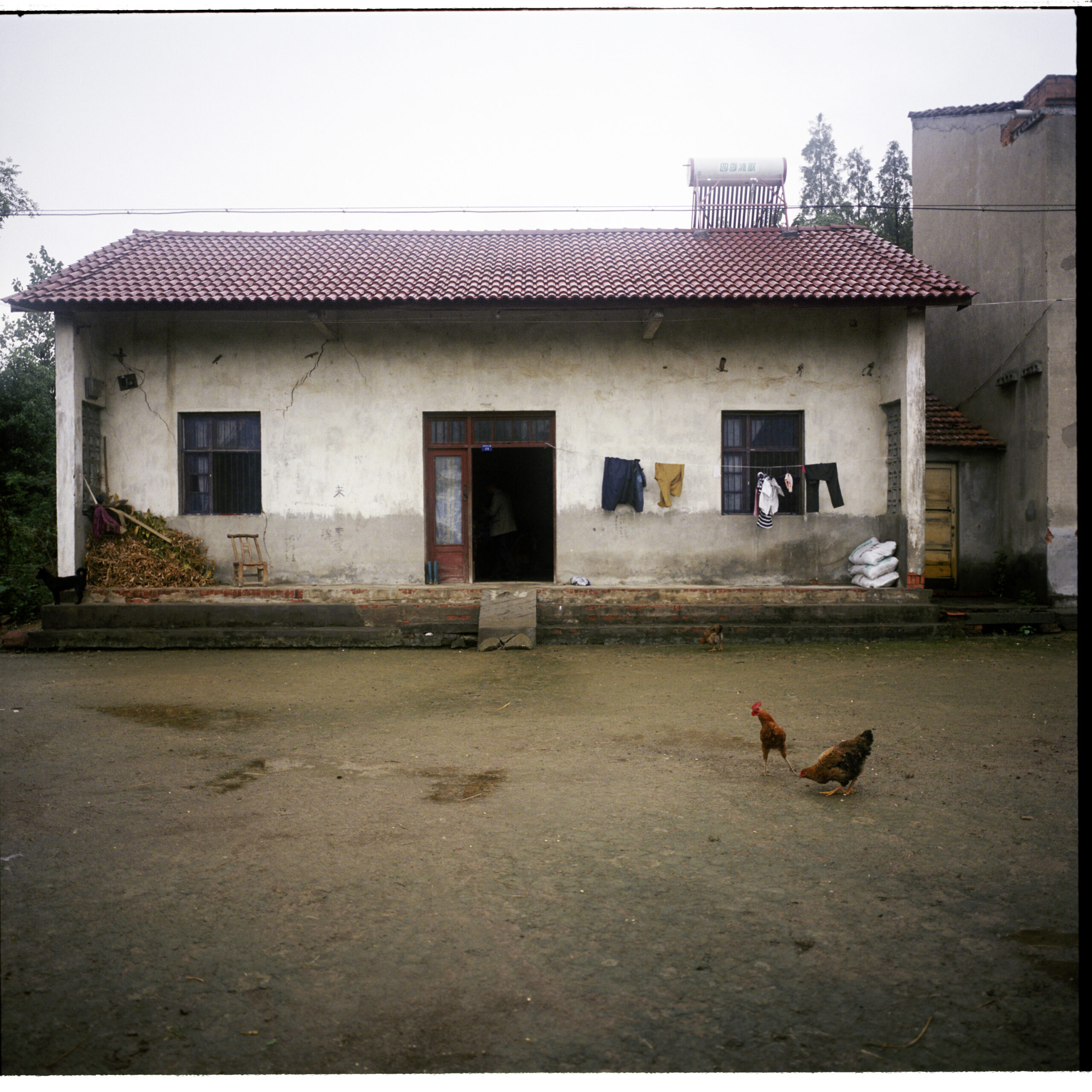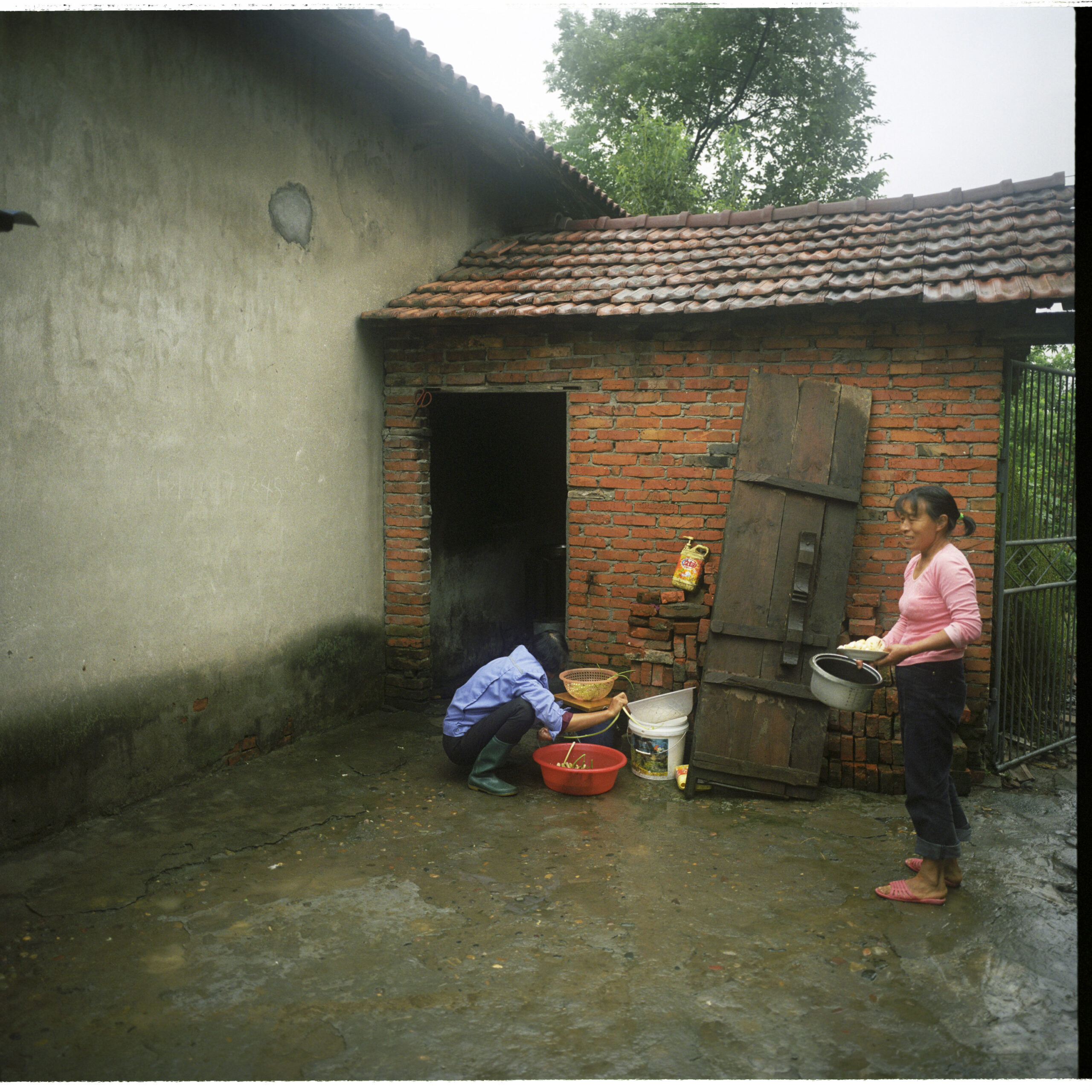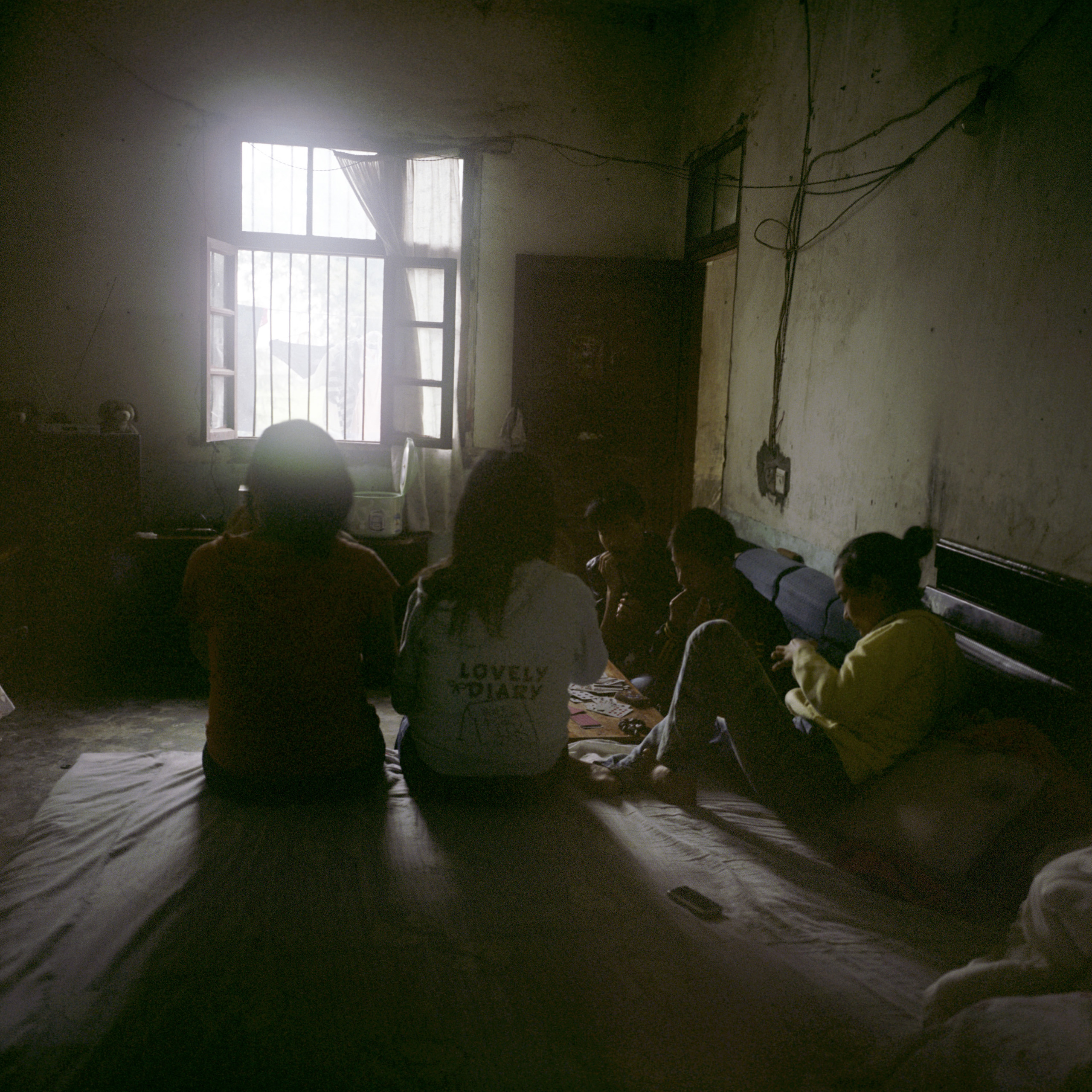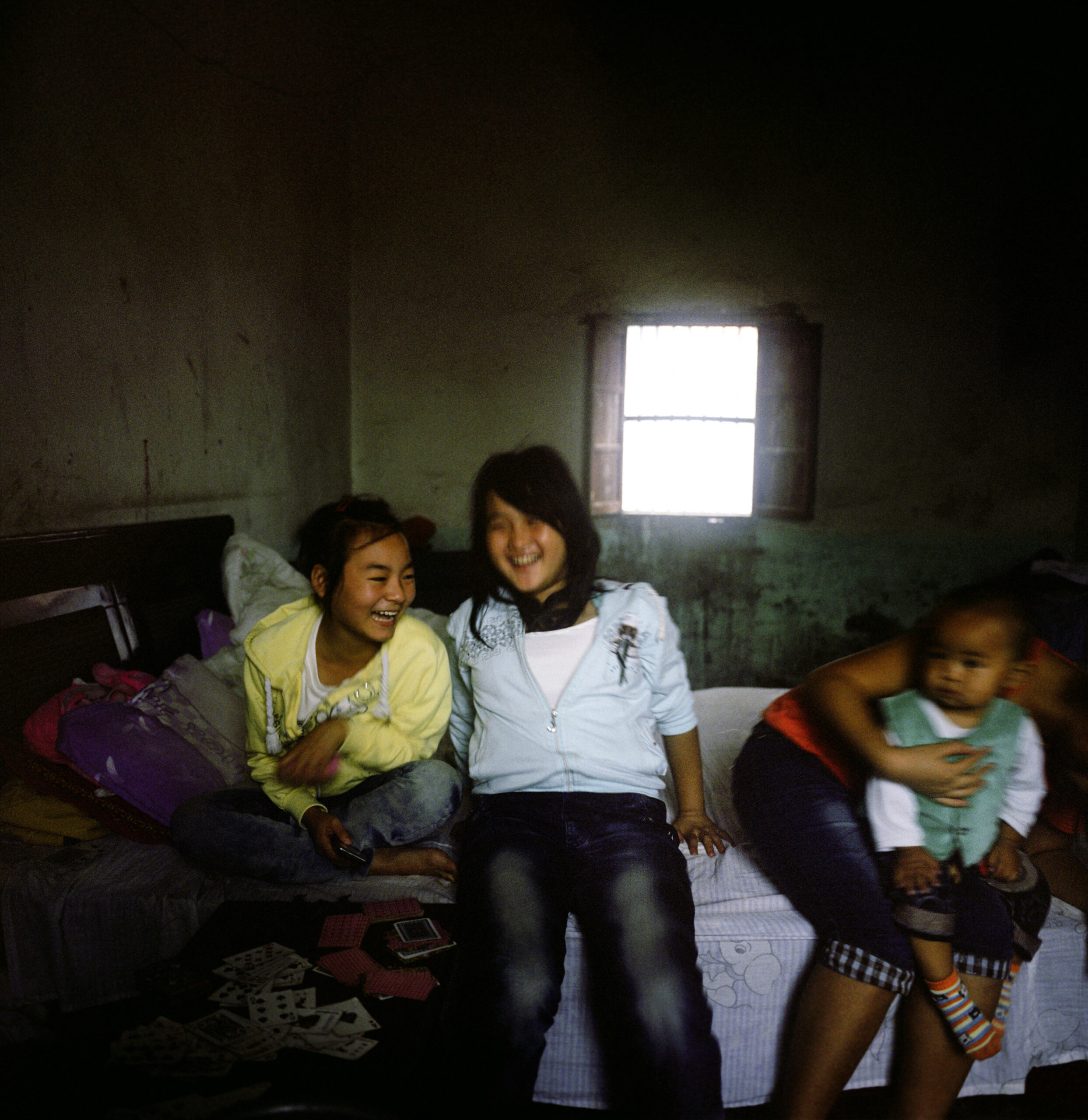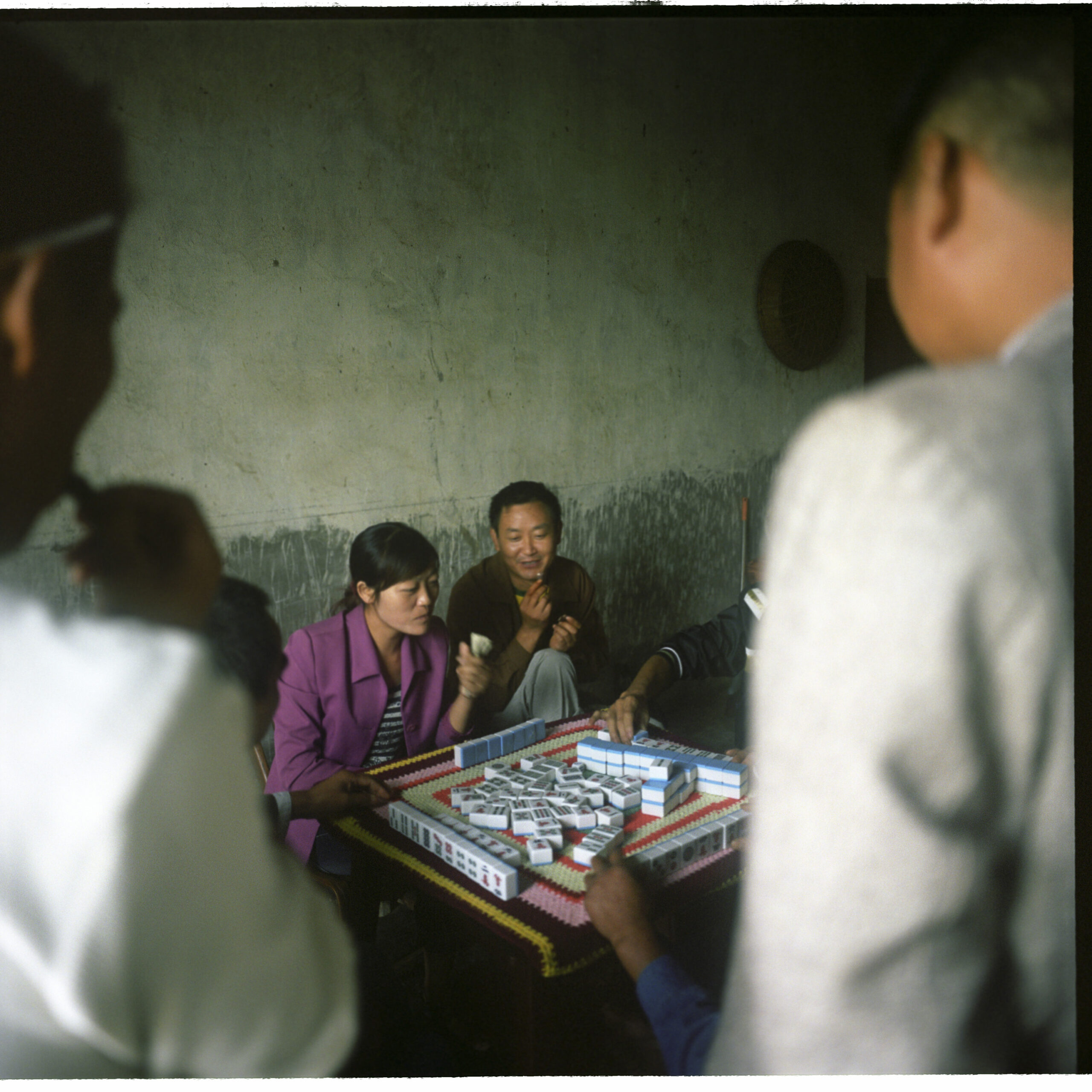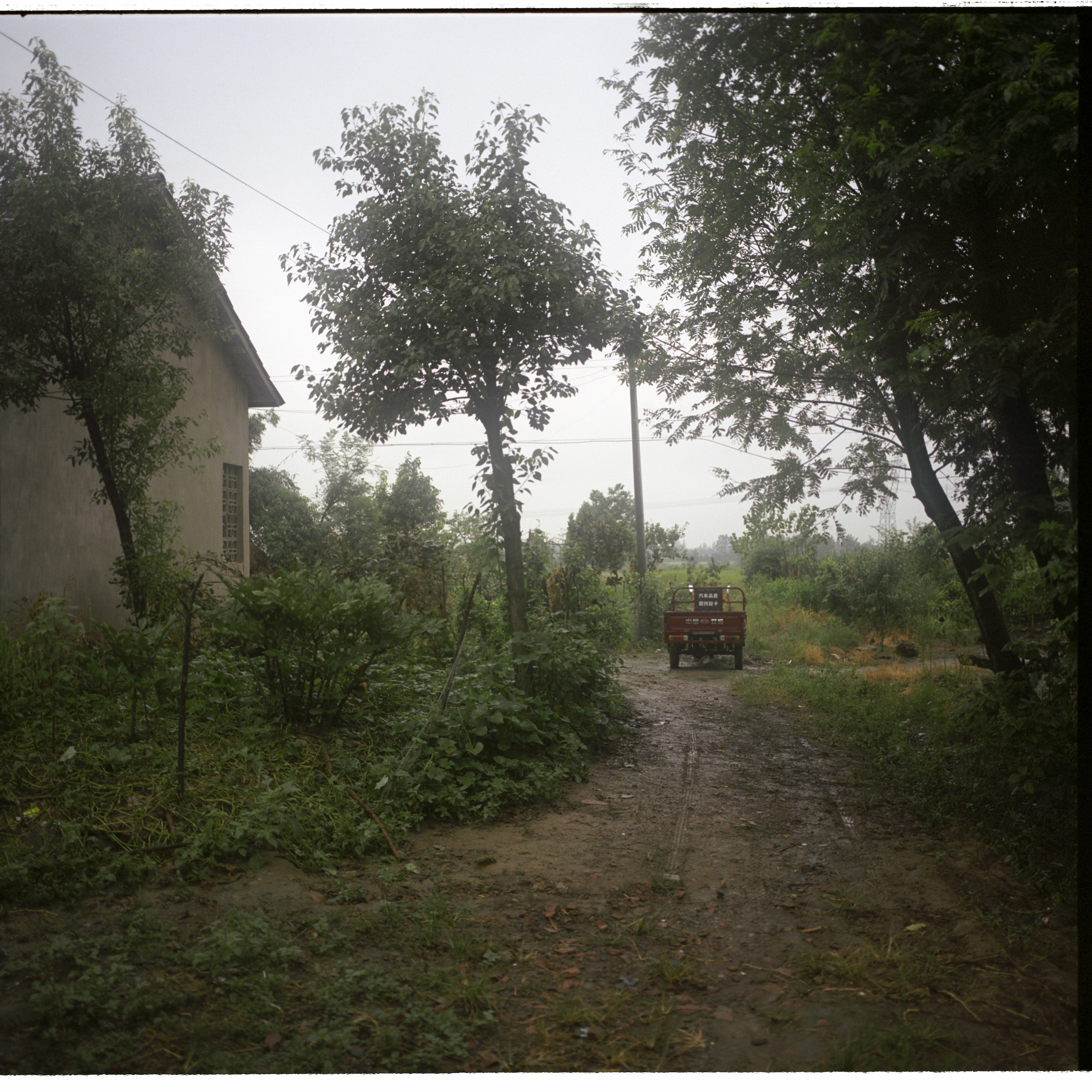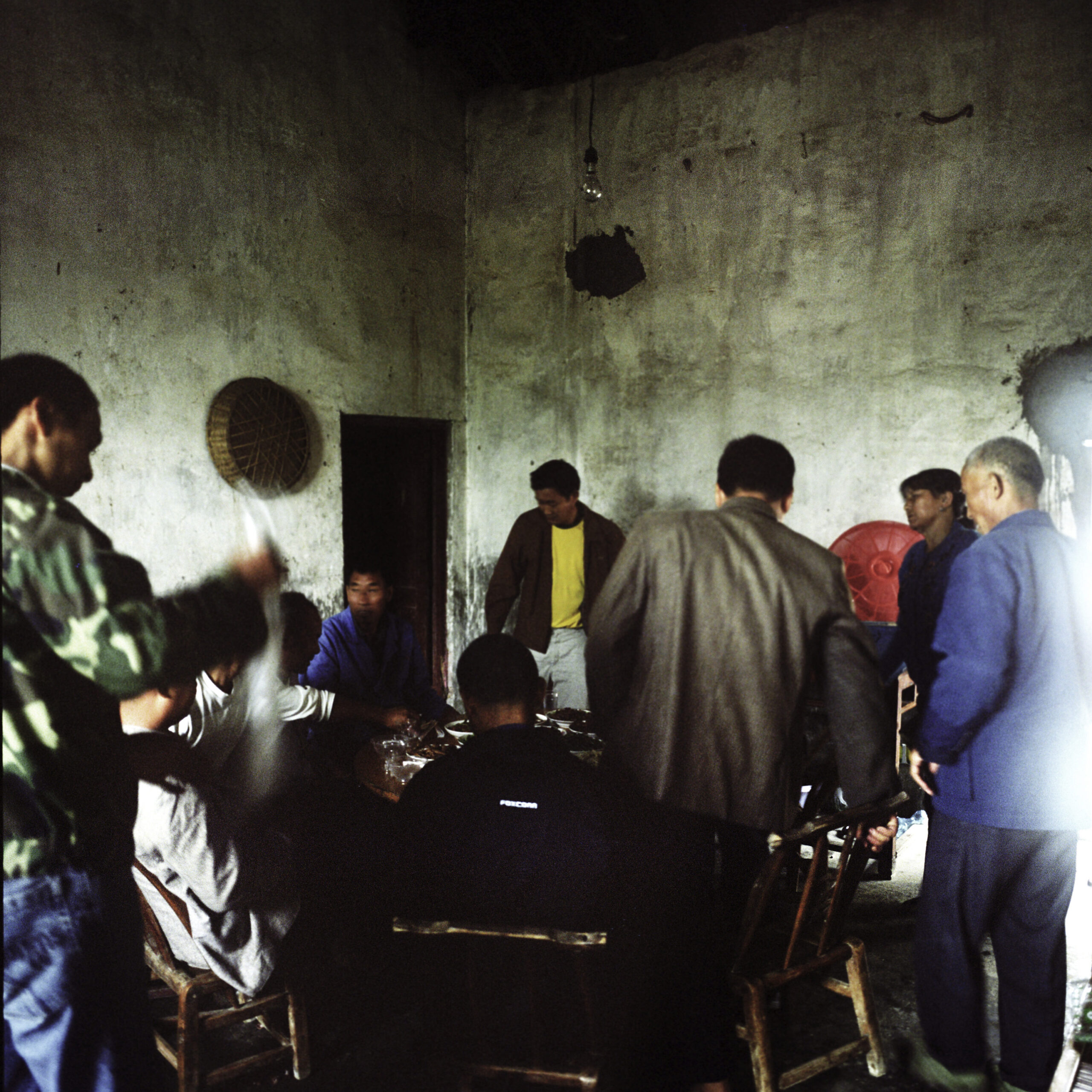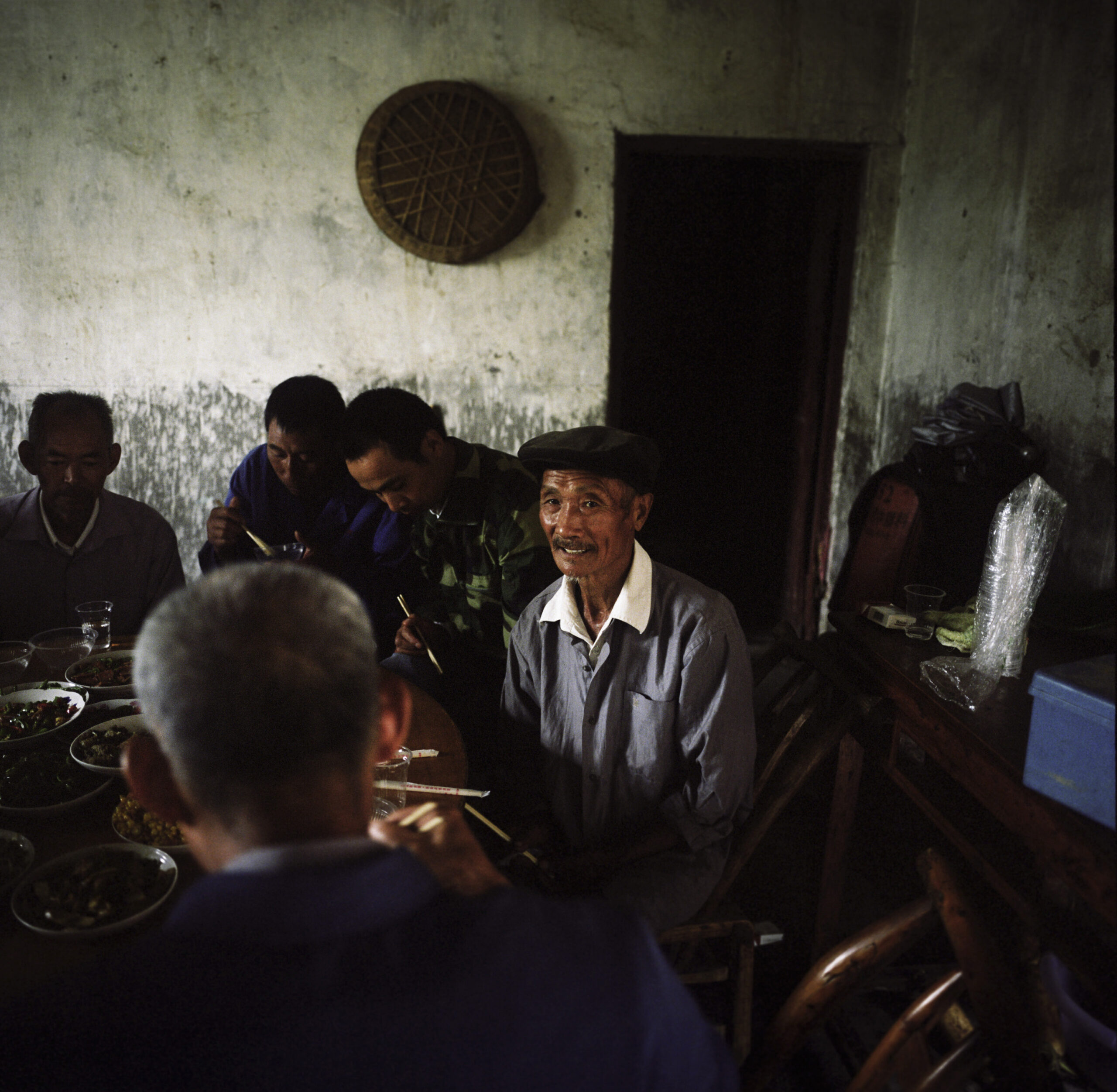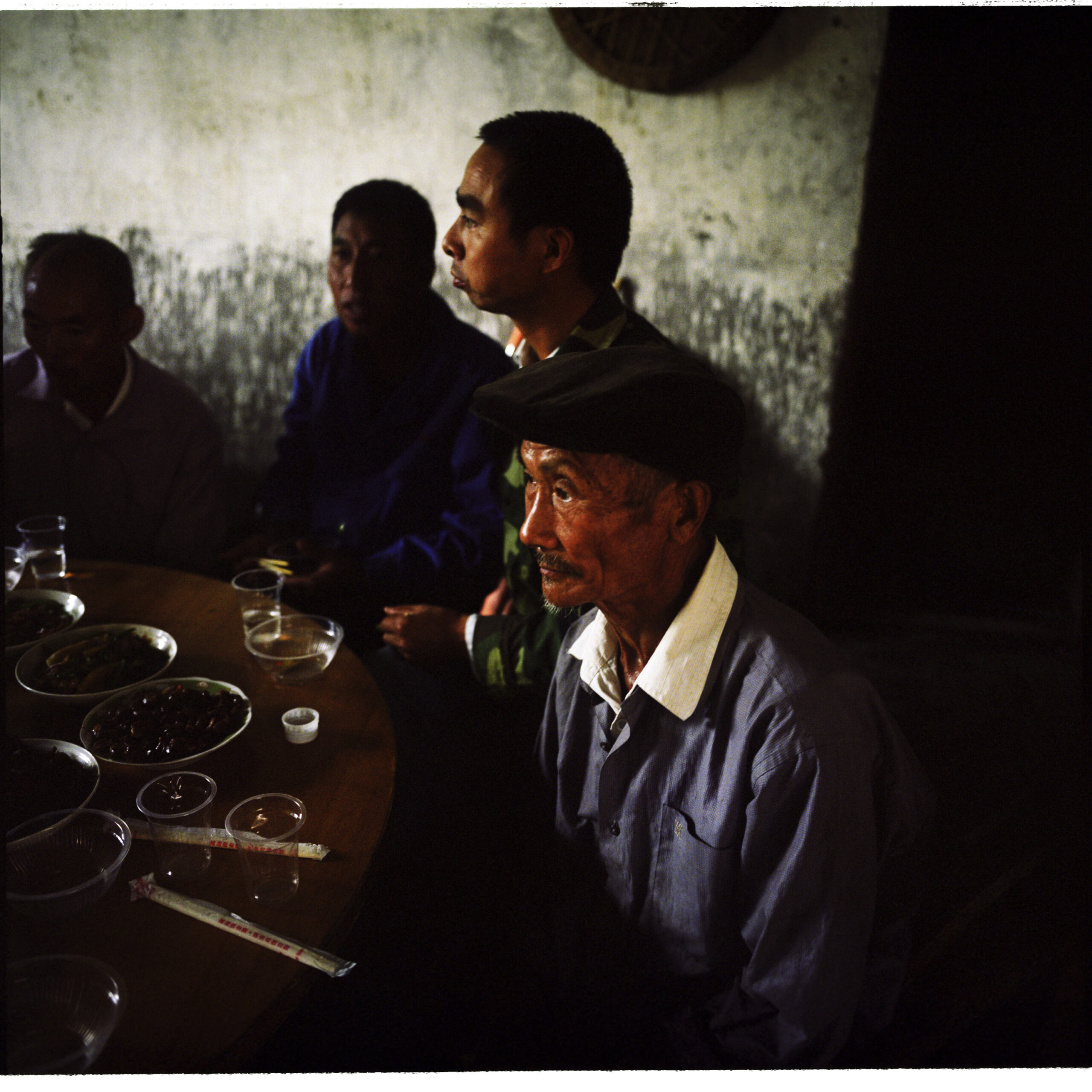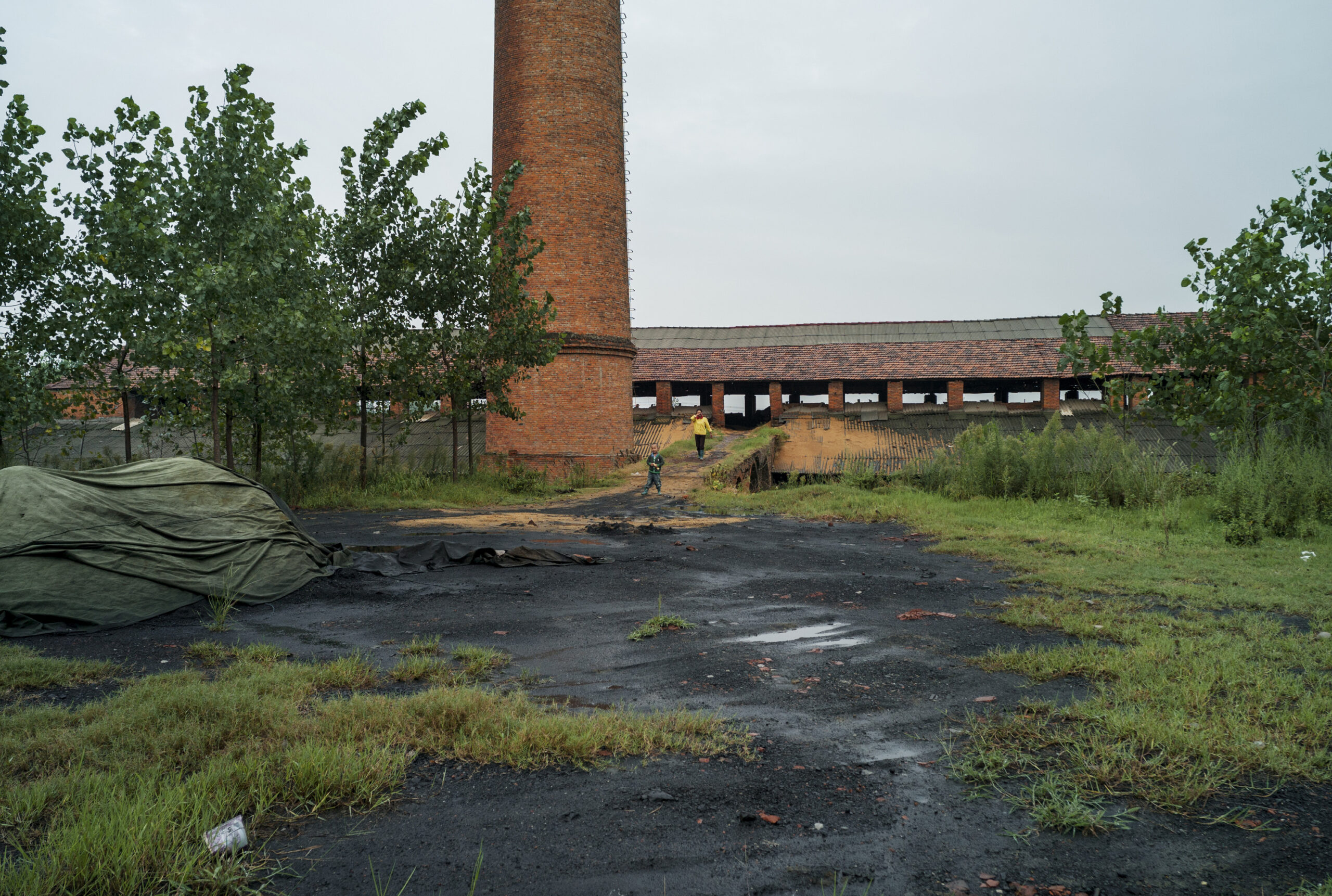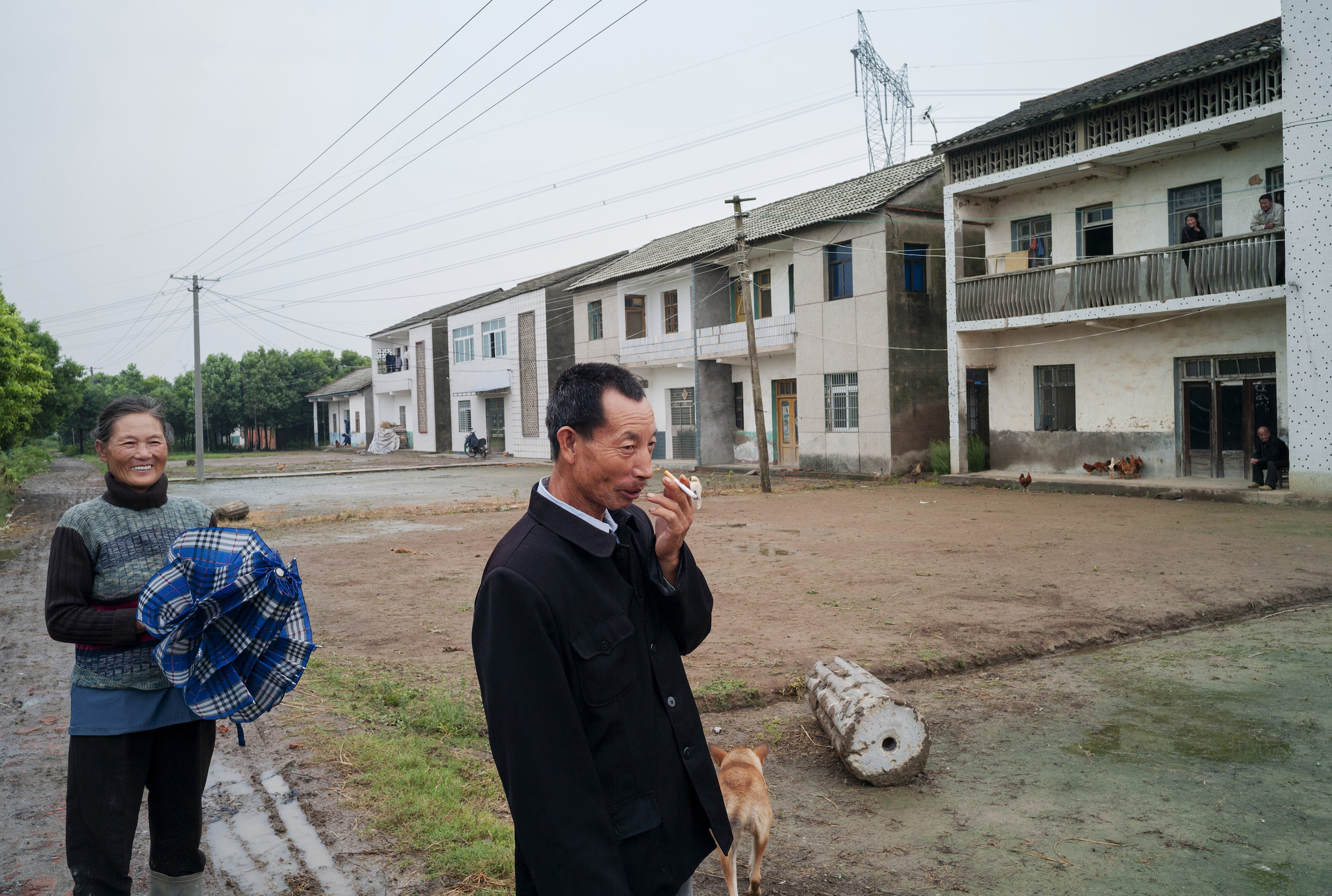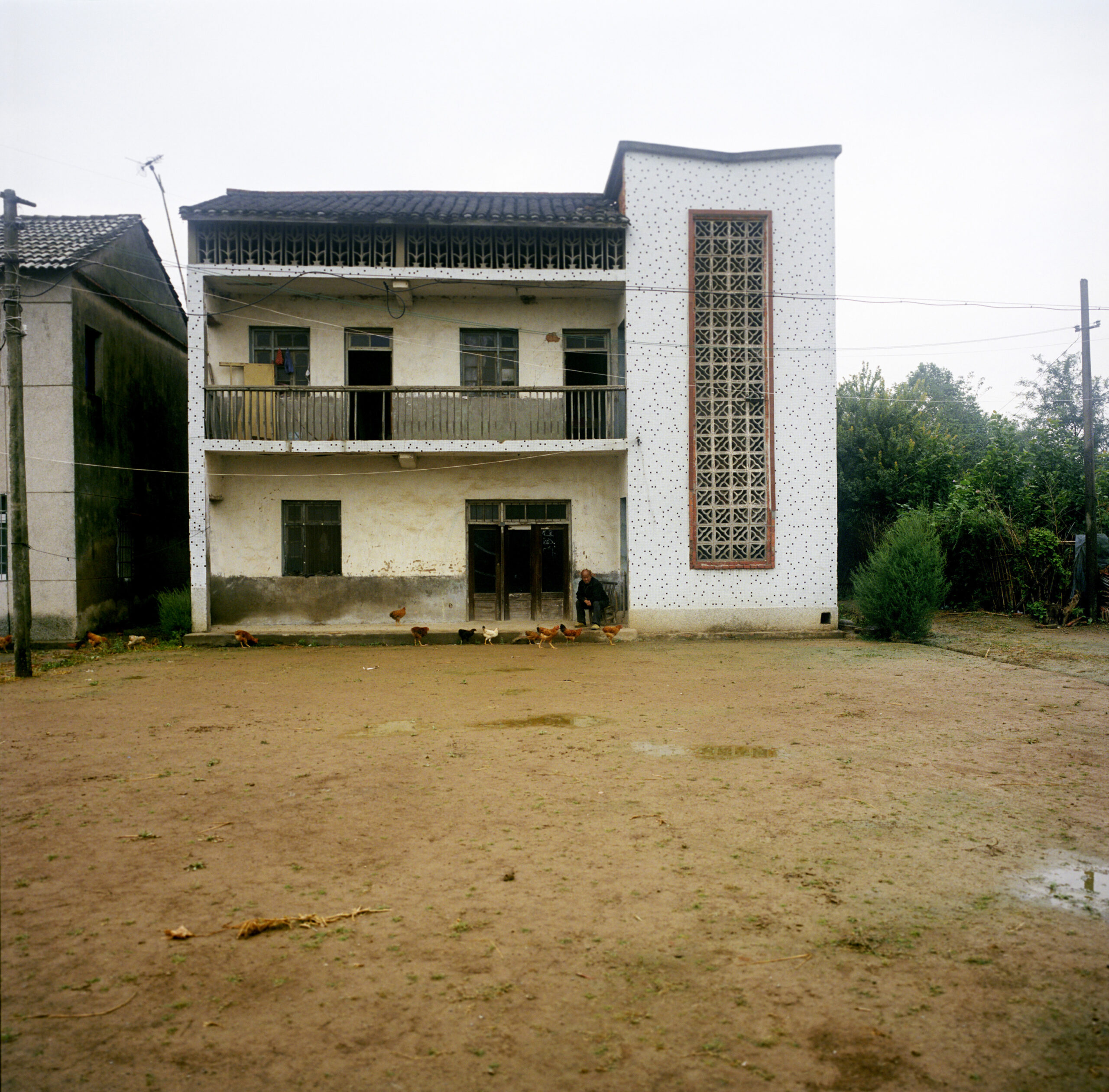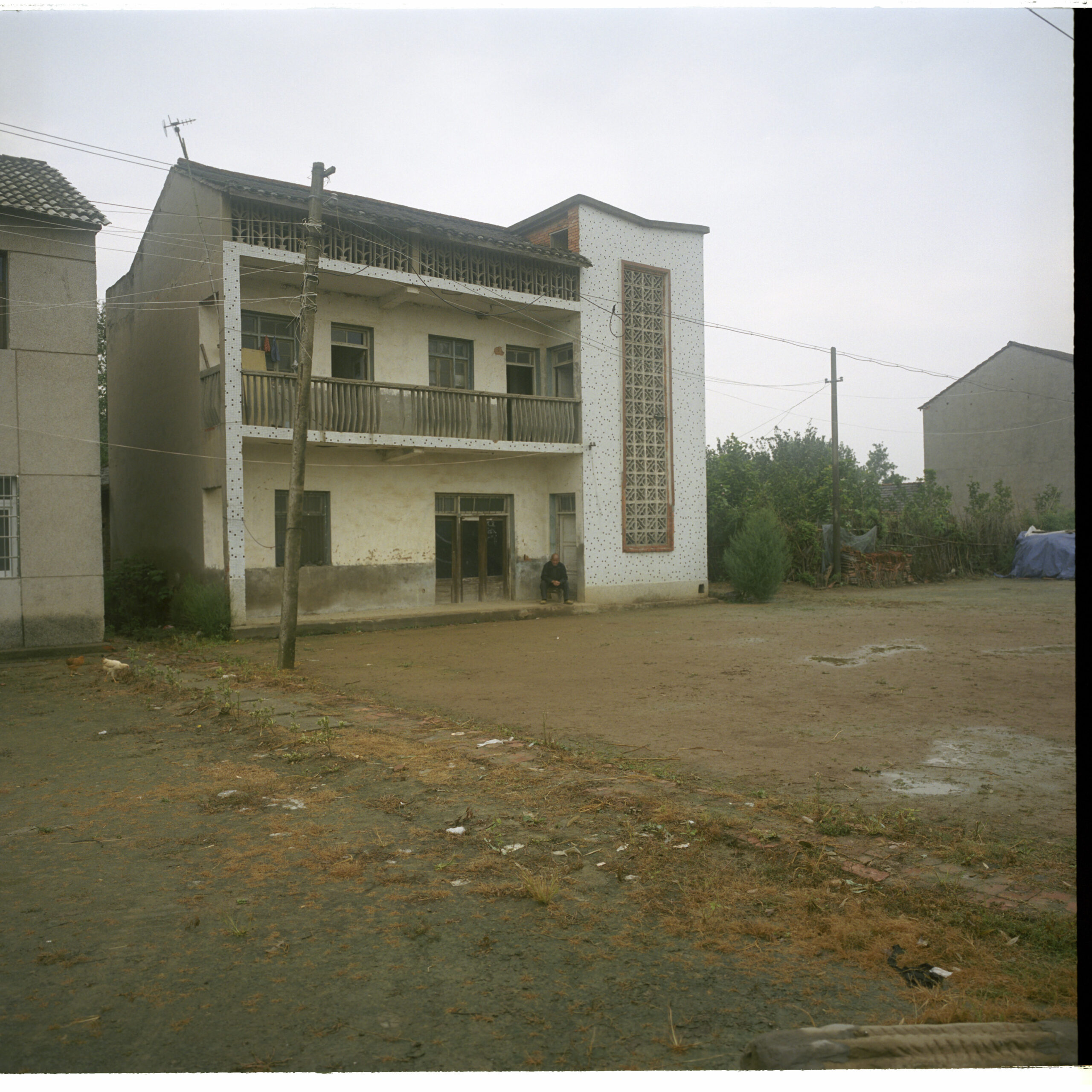Looking for He Guizhen
Chapter 4 – Gusong Village 古松村
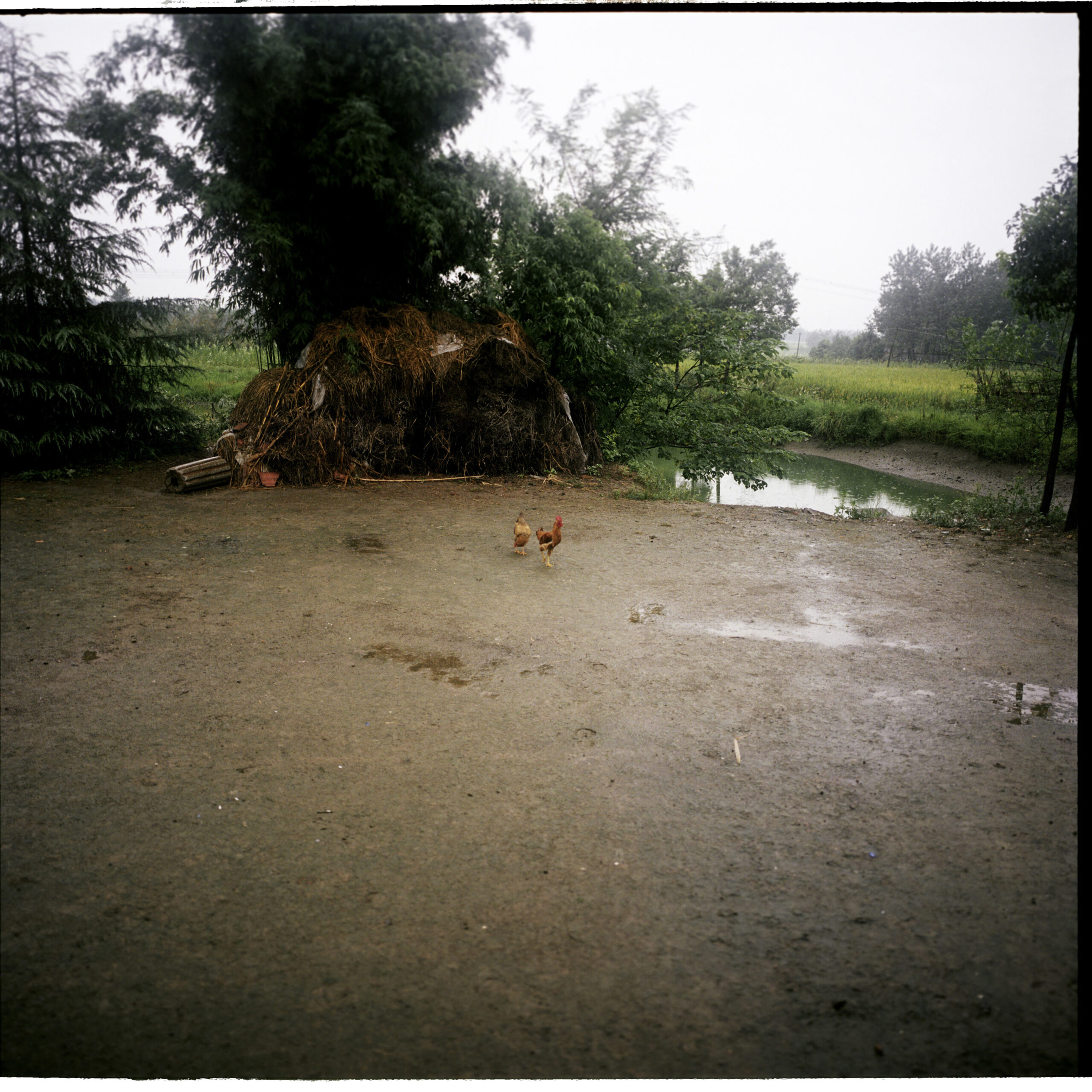
I wanted to see with my own eyes what had made Mr. He Guizhen and his family come back to Wushan to sleep in a tent on the river bank for two years. Considering that almost no one’s compensation had been spared from the authorities’ corruption, I wanted to understand why some migrants decided to remain in Gusong Village.
In August 2011, two months after I met Mr. He Guizhen in Wushan, I went to Gusong Village in Jinzhou, Hubei province. It was where Mr. He and his family migrated in 2003 and remained for two years. Compared to the waters of the Yangtze River in Chongqing region, it is very different there. The river appears much wider and even violent. Unlike Wushan, where the river is the central feature of the town, in Hubei province the river becomes less dominant as the terrain stretches further inland and the riverfront becomes more distinguished. Gusong village is 50km away from the center of Jingzhou. There are few hints of the Yangtze River.
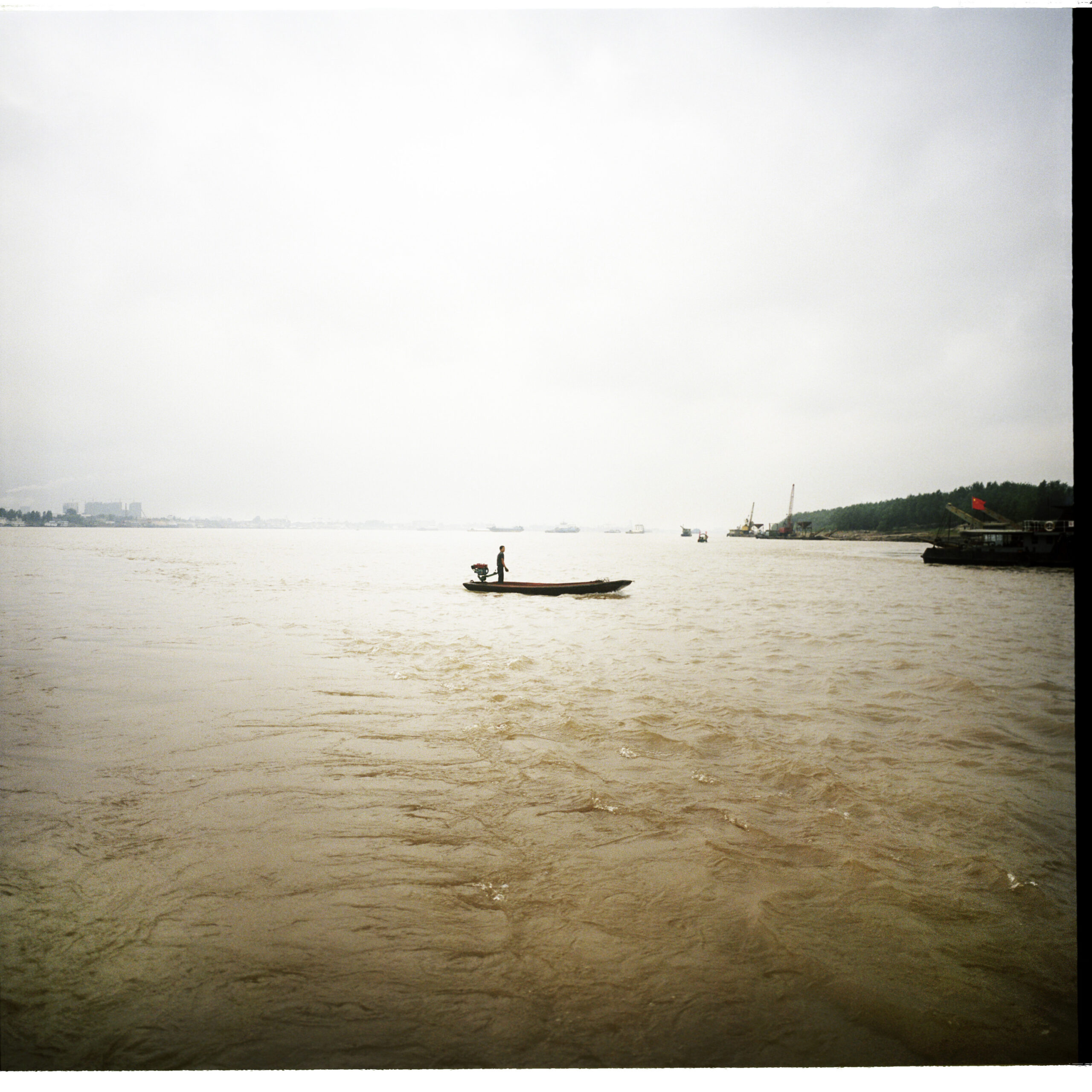
Apart from the large sized ferry, many small motorboats ran across the Yangtze River between Jingzhou to Lalin Zhou. - Jingzhou, Hubei Province, China, August 2011
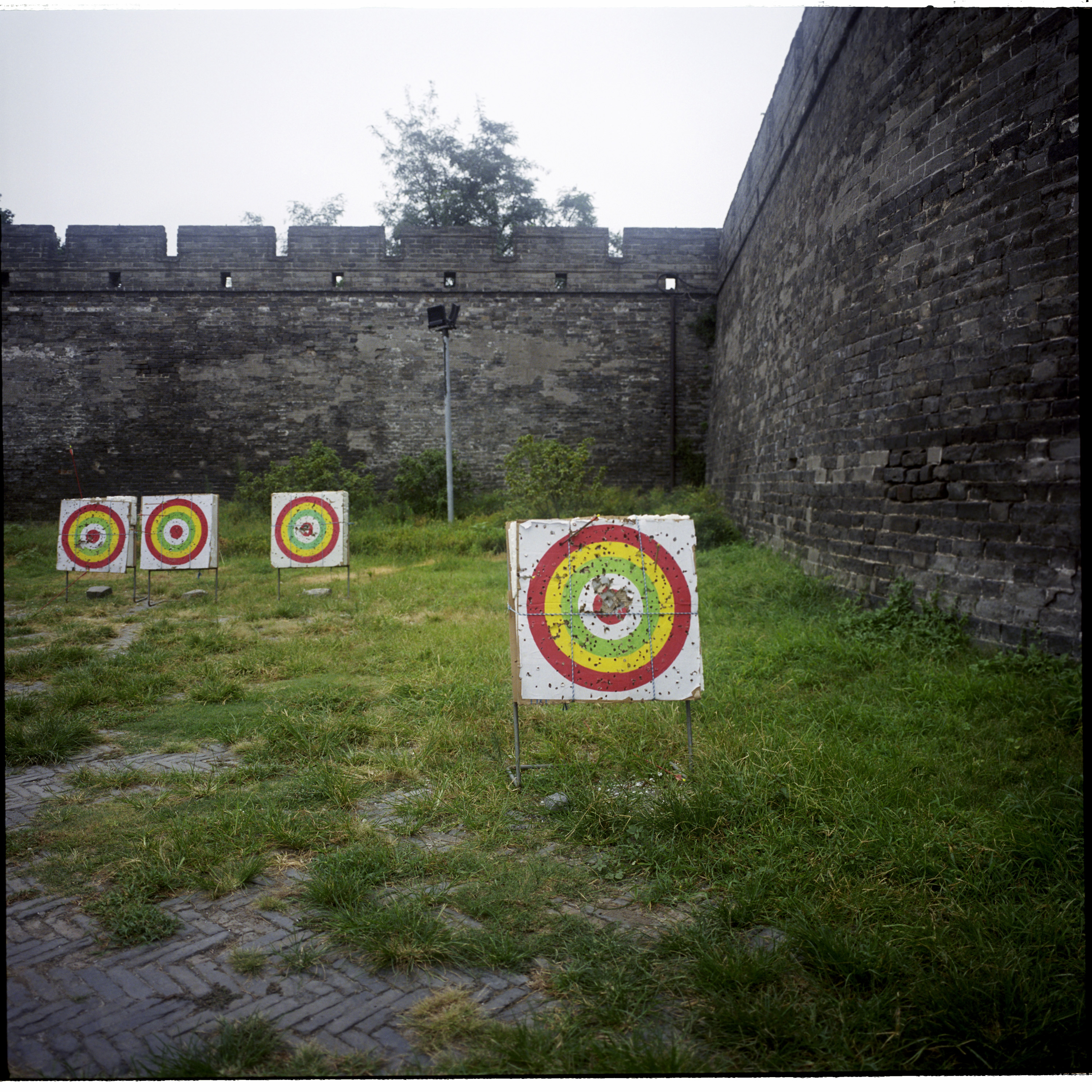
Jingzhou old city wall is one of the best preserved ancient city walls in China. The brick wall’s history went back to the Three Kingdom era (220-280 A.D) yet the most of the existing wall structure were constructed in Ming and Qing Dynasty. Comparing to the rest of administration area of Jingzhou municipality, the old town of Jingzhou appeared clam and slow pace,. - Jingzhou, Hubei Province, China, August 2011
From the main bus station in Jingzhou, I took a bus bound for the Town of Chuandian to Gusong Village. I was anxious because I was told I had to get off the bus after a certain number of turns otherwise I would miss my destination.
From the main road another motorized tricycle took me to the village. It had been rainy and hot in August, the field was lively, the vegetation on the side of the roads grew unruly yet very lavish. The driver steered the tricycle off the paved road and went through a muddy alley to Mr. Liang Jinqun’s home.
The tricycle stopped in front of a red brick building. I walked through the backyard to the main house. Typically in rural areas, people rarely close the door of the house during the daytime. It was like a default sign of welcome. There were quite a few people in the house already. Mr. He Guizhen had told me to first come to Mr. Liang’s home which was the gathering spot for Wushanners.
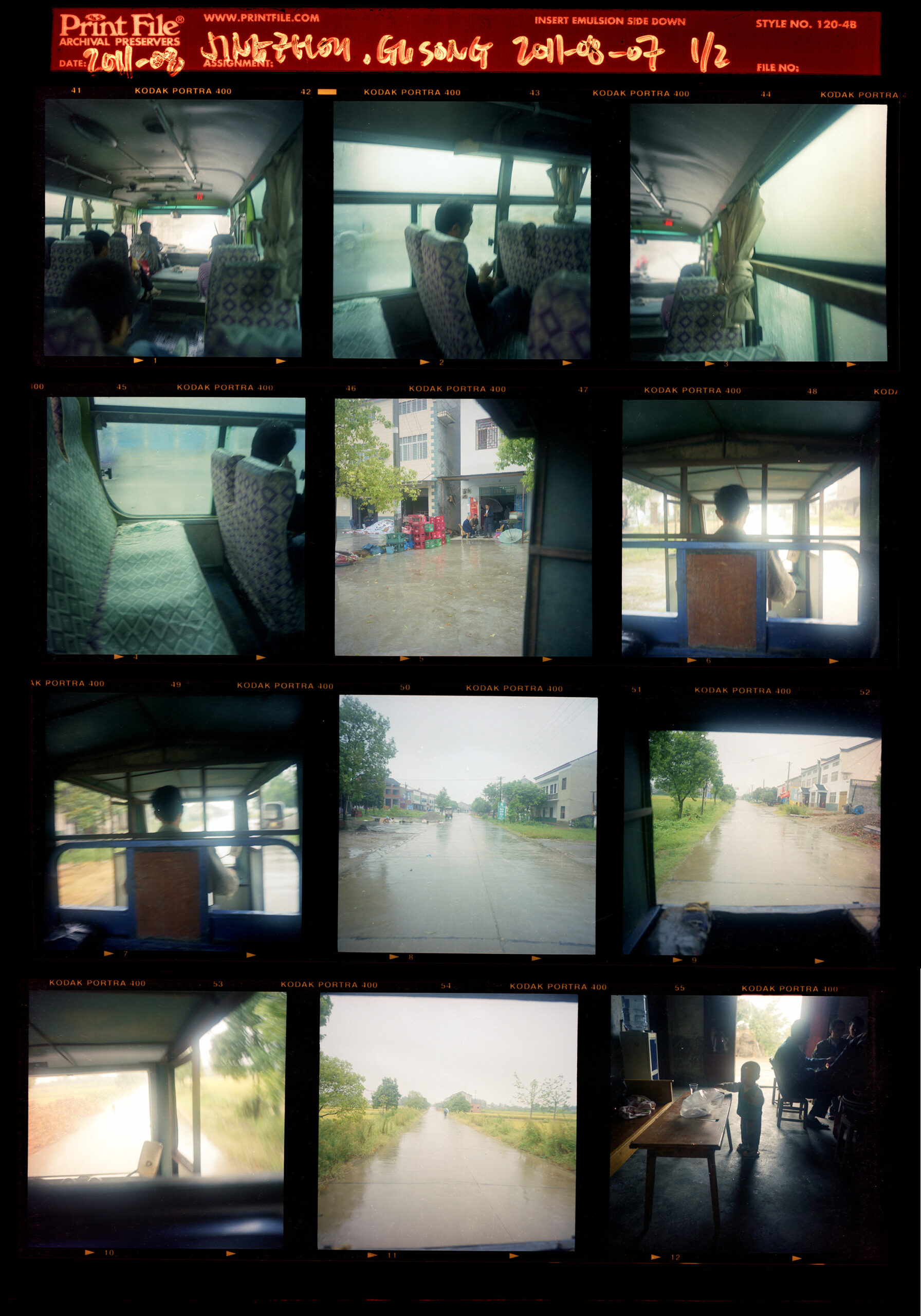
Gusong Village is 50 km away from the center of Jingzhou city. To get to Gusong Village from Jingzhou involved bus and motor-tricycle. - Gusong Village, Jingzhou, Hubei Province, August 2011
I stood at the door of the house and introduced myself and mentioned Mr. He Guizhen in Sichuan dialect. I said I was looking to see Mr. Liang Jingqun. Someone sitting at the door pointed to a man at the Majiang table. Mr. Liang raised his head and nodded towards me. I was led into the room and given a small stool to sit down. Even though no one paid much attention to me, I didn’t feel ignored but welcomed.
After a little while people started speaking to me. They said I was lucky that Mr. Liang was home. Due to a work injury, Mr. Liang had stayed home and many Laoxiang (fellow villagers from Wushan) were there to greet him.
In 1998 when the Wushan authorities started to mobilize the migration, 23 families in Wushan collectively hired a middleman to scout potential destinations. After evaluating many factors including the local government’s promises, 25 families decided to come to Gusong Village in Hubei province.
Mr. Liang and his family of six moved to Gusong Village in 2001. During the day, Mr. Liang worked in the field and at night he traveled to Jingzhou to work at the pier to make some cash. Some of Mr. Liang’s relatives didn’t move to Gusong Village directly. For example, Ms. Zhu went to the Pearl River Delta region to work in the factories for seven years. She came back home in 2010 when her first son was born. Regardless of the unfulfilled promises, shrunken compensation, and the hardships of the new place, the family decided to stay in Gusong Village for the time being as long as life could continue. Besides, moving with a big family wasn’t easy.
As the conversation went along, the villagers said I should meet Mr. Xiao Zien. He was 68 years old in 2011 and also from Wushan. He had been advocating for the migrants’ rights and benefits. Ms. Zhu called Mr. Xiao to ask him to come for lunch. After a little while a short but very fit old man walked into the house. Mr. Xiao came prepared and excited. He carried a stack of receipts and documents as proof of the promises and unpaid credit by the government. Since moving to Gusong in 2011, Mr. Xiao had basically refused to go along with all the arrangements imposed by local authorities that he felt were unjust. He went to higher level authorities to petition for the other Laoxiang and himself more than 29 times. He confronted the officials for the unpaid compensation and labor. He was detained for a week for his actions.

Mr. Xiao Zien migrated to Gusong Village from Wushan. As the local authorities failed to pay the promised compensation nor housing, Mr Xiao refused to pay for the housing out of his own pocket. Furthermore, he didn’t remain silence. He had been an advocate for his own and other migrants’ rights. He was showing an unpaid IOU note of RMB 1,000 yuan from the village authority. The note was dated in 2003. - Gusong Village, Jingzhou, Hubei Province, China, August 2011
As always, lunch time was one of the most exciting moments. Due to the number of guests, Mr. Liang’s wife and niece prepared a feast. We were sitting at a large table with plenty of dishes. After a few rounds of beer everyone was excited and speaking loudly, except for Mr. Xiao. He stood apart from the crowd. He was more interested in telling me his stories. While I was eager to hear his stories, I felt extremely guilty since I knew I would not be able to do much for them.
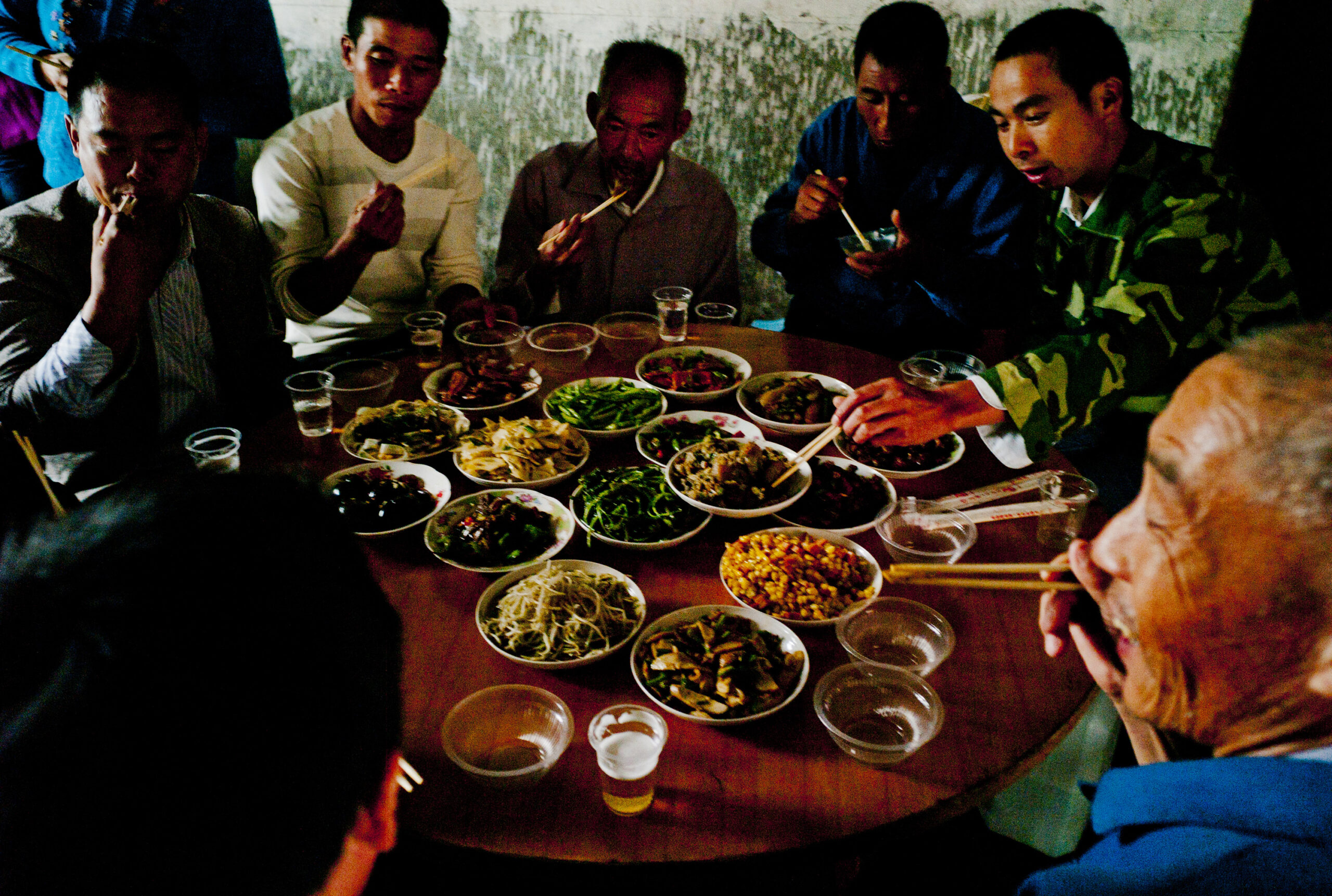
A feast lunch at Mr. Liang Jinqun’s home in Gusong Village, Jingzhou, Hubei Province. Mr. Liang and his family are originally from Dongping Village, Wushan. Due to the rising water, they migrated to Gusong Village in 2001. Mr. Liang was injured at work one day earlier, hence many of his Laoxiang (the people sharing the same home origin) came to greet and cheer him. - Gusong Village, Jingzhou, Hubei Province, China, August 2011
Mr. Xiao finished his lunch and asked me if I wanted to go with him to see his home and Mr. He Guizhen’s house which had been sold in 2006. I went with him through the muddy roads and reached a fishpond. Mr. Xiao was working as the caretaker of the fishpond in exchange for boarding at the nearby warehouse where the fish food was stored.

Mr. Xiao Zien was walking back to a warehouse where he temporarily resided at the time. -Gusong Village, Jingzhou, Hubei Province, August 2011

Xiao Zien, born in 1943, is one of the migrants from Wushan in Gusong Village. He had been tirelessly fighting against the local authority for the unpaid compensation and benefit to the migrants. Among many odd jobs, Xiao worked as a caretaker for a local family for their fishpond in exchange for temporary accommodation. - Gusong Village, Jingzhou, Hubei province, Aug 2011
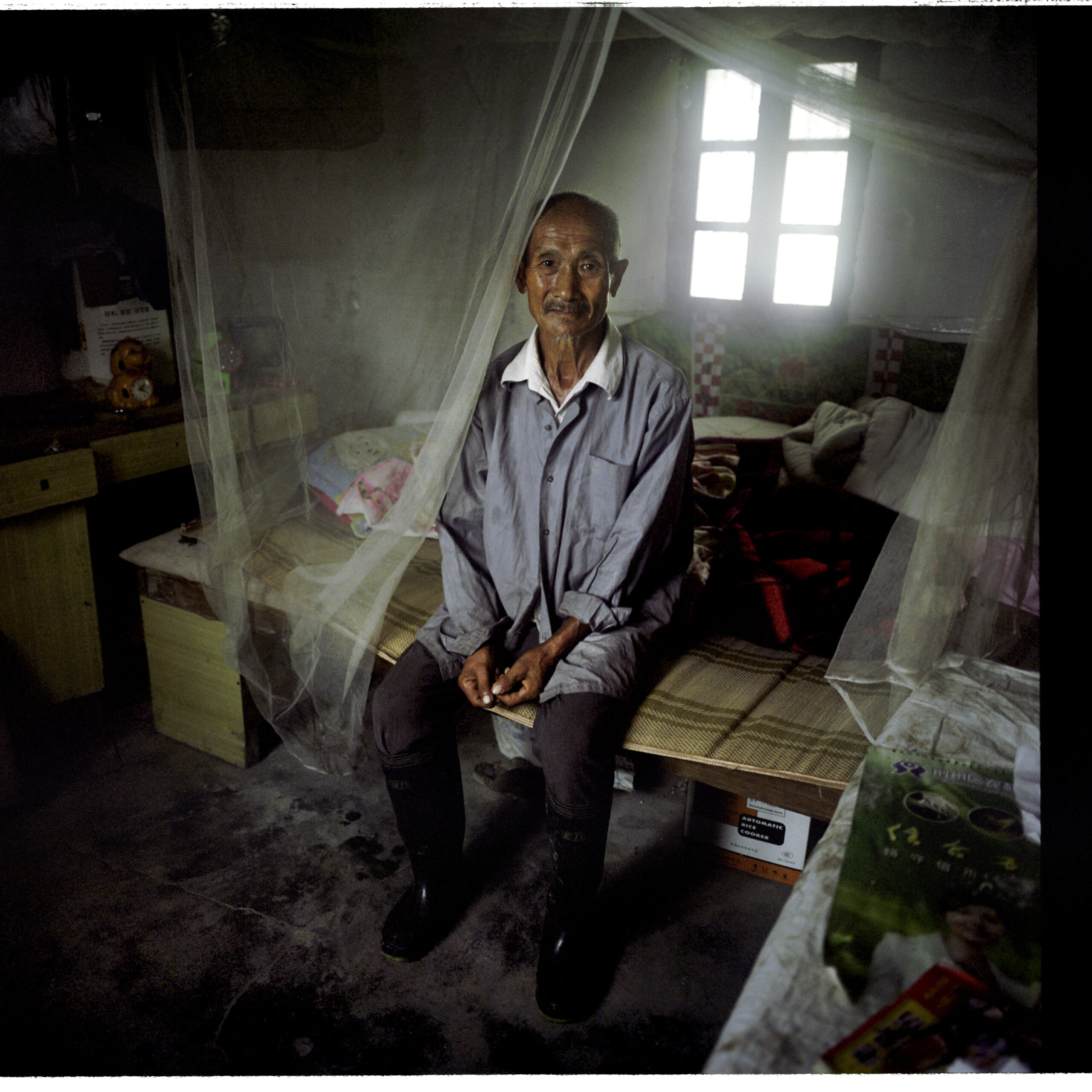
Mr. Xiao Zien in his bedroom that was part of the storage room for the fish pond. - Gusong Village, Jingzhou, Hubei province, Aug 2011

Mr. Xiao Zien in his bedroom - Gusong Village, Jingzhou, Hubei province, Aug 2011
Mr. Xiao brought me to see the house where Mr. He Guizhen and his family lived from 2003 to 2005. It was one of the several two-story houses on the block. The houses were constructed in concrete and looked spacious. However, they were oddly situated and incomplete. The yards in front of all the houses were almost identically sized, unpaved and appeared abandoned. Mr. Xiao pointed to a tall chimney made with red brick and said it was the brick factory where Mr. He Guizhen worked before he and his family left. The last job Mr. He Guizhen had in Gusong was to load bricks at this factory. He was paid RMB 0.2 for every brick. Based on the number of the bricks he could load with one arm, he usually earned RMB 24 Yuan daily.
Before I left Gusong Village, I asked Mr. Xiao about his plans. He said that as soon as he could win the fight for the RMB 1,685 per person subsidy promised by the Hubei provincial government in 2003, he would move to Chongqing to join his son. In the meantime he would keep fighting.
By 2011, 11 families out of 25 from Wushan had left Gusong Village. In my mind, life would not get easier whether they remained in Hubei province or moved back. The families must trust that their decision was the most sensible one, however there was not even the slightest guarantee. I was impressed by Mr. Xiao’s persistence and stubbornness in advocating for their rights, yet there was no certainty or even a clear path.
I recalled a complaint Mr. He Guizhen had voiced at his home in June. He said after many misfortunes in his life, he chose the path to migrate as he didn’t think there was anything valuable to lose, but it should not mean that he should lose everything.

